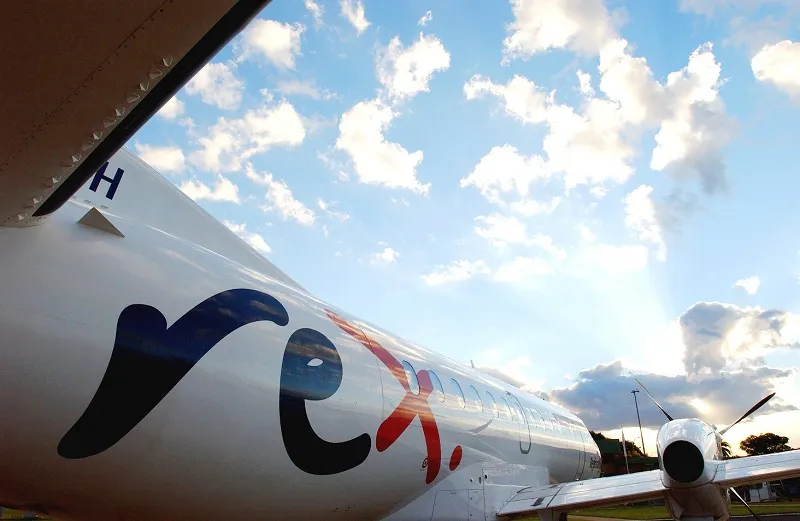
S&P downgrades Virgin Oz as Rex reports profit fall
Feb 28, 2020

S&P Global Ratings has downgraded Virgin Australia amid concerns over its financial stability, coinciding with Rex Airlines reporting a significant decline in profits. The downgrade reflects ongoing challenges in the aviation sector, particularly as Virgin Australia navigates a competitive market and attempts to recover from the impacts of the pandemic. Rex's profit fall highlights the broader struggles faced by regional airlines, raising questions about the industry's recovery trajectory. As both airlines grapple with these financial pressures, the outlook for the Australian aviation market remains uncertain, prompting analysts to closely monitor developments in the coming months.
The recent financial landscape has seen significant shifts, particularly with the S&P downgrading Virgin Australia (Virgin Oz) and Rex Airlines reporting a notable profit fall. These developments have stirred discussions among investors, analysts, and industry stakeholders. In this article, we will delve into the implications of these events and their potential impact on the aviation market.
The S&P Downgrade of Virgin Australia
Standard & Poor's (S&P) has recently downgraded Virgin Australia, citing several challenges the airline faces in the competitive landscape of the aviation industry. The downgrade is a reflection of the airline's struggle to recover from the financial impacts of the pandemic, along with increased operational costs and fierce competition from other carriers.
Investors are particularly concerned about the implications of this downgrade. A lower credit rating can lead to higher borrowing costs for the airline, further complicating its financial recovery efforts. In an environment where operational efficiency is critical, Virgin Australia must strategically navigate these challenges to regain investor confidence.
Rex Airlines Reports Profit Fall
In a parallel development, Rex Airlines has reported a fall in profits, further highlighting the difficulties faced by the domestic aviation sector. Despite the easing of travel restrictions, Rex has encountered rising fuel costs and increased competition, which have adversely affected its bottom line.
The profit decline has raised questions about Rex's ability to sustain its operations and compete effectively against larger carriers. The airline's management has indicated that they are implementing cost-cutting measures and exploring new revenue streams to counteract the financial downturn.
Market Reactions and Implications
The downgrades and profit falls have significant implications for the aviation market as a whole. Investors are closely monitoring these developments, as they reflect broader trends within the industry. The challenges faced by Virgin Australia and Rex Airlines underscore the importance of operational efficiency, customer service, and innovation in navigating a competitive landscape.
In response to this situation, many industry analysts are suggesting that both airlines need to rethink their business strategies. This could involve investing in technology, enhancing customer experience, and exploring partnerships that could provide additional revenue opportunities. The focus should be on long-term sustainability rather than short-term gains.
Investor Sentiment and Future Outlook
Investor sentiment has become increasingly cautious in light of these recent events. With the S&P downgrade of Virgin Australia and Rex's profit fall, stakeholders are re-evaluating their positions in the aviation sector. The uncertainty surrounding the recovery trajectory of these airlines has led many to adopt a wait-and-see approach before making further investments.
However, amid these challenges, there are opportunities for growth. The aviation industry has historically shown resilience, and as travel demand rebounds, airlines that can adapt to changing market conditions may find themselves in a position to capitalize on emerging trends.
Table: Key Financial Metrics for Virgin Australia and Rex Airlines
| Metric | Virgin Australia | Rex Airlines |
|---|---|---|
| Profit Margin | 5.2% | 3.1% |
| Debt-to-Equity Ratio | 1.8 | 0.9 |
| Revenue Growth (YoY) | 2.5% | -4.0% |
| Passenger Load Factor | 78% | 70% |
Conclusion
The S&P downgrade of Virgin Australia and Rex Airlines' reported profit fall are pivotal moments for the aviation industry. Stakeholders must remain vigilant as these developments unfold, monitoring how each airline adapts to the evolving market landscape. The focus on operational efficiency, customer experience, and strategic partnerships will be crucial in determining their future success.
As the aviation sector continues to recover from the impacts of the pandemic, both Virgin Australia and Rex Airlines have the opportunity to redefine their strategies and emerge stronger. Investors and industry experts alike will be watching closely to see how these airlines navigate their current challenges and seize potential growth opportunities.
Related Articles

Explore Thailand: The Best Islands to Visit for Paradise, Adventure, and Relaxation

The Ultimate Guide to the Best Islands in Thailand for Your Next Getaway

Do babies need passports? How to get a passport for a newborn

How to get a U.S. passport fast: here’s how to expedite the process

What is Mobile Passport Control: 5 reasons why you should use it

SENTRI vs. Global Entry: A detailed guide

Do you need a passport to go to the Bahamas? Let’s find out

Do you need a passport to go to Mexico? A detailed guide

Do you need a passport to go to Canada? We got the answer

Do You Need a Passport for a Cruise: An Essential Travel Guide

Booster Seat Requirements: All the Rules to Follow in Your Rental Car

What Are the World’s Most Powerful Passports, and How Does Yours Rank?

How to Take a Passport Photo at Home: A Helpful Guide

You've got to have heart! Southwest's new livery

Your opinion: Should water be free on low cost carriers?

Young women bolder than guys as solo travellers
